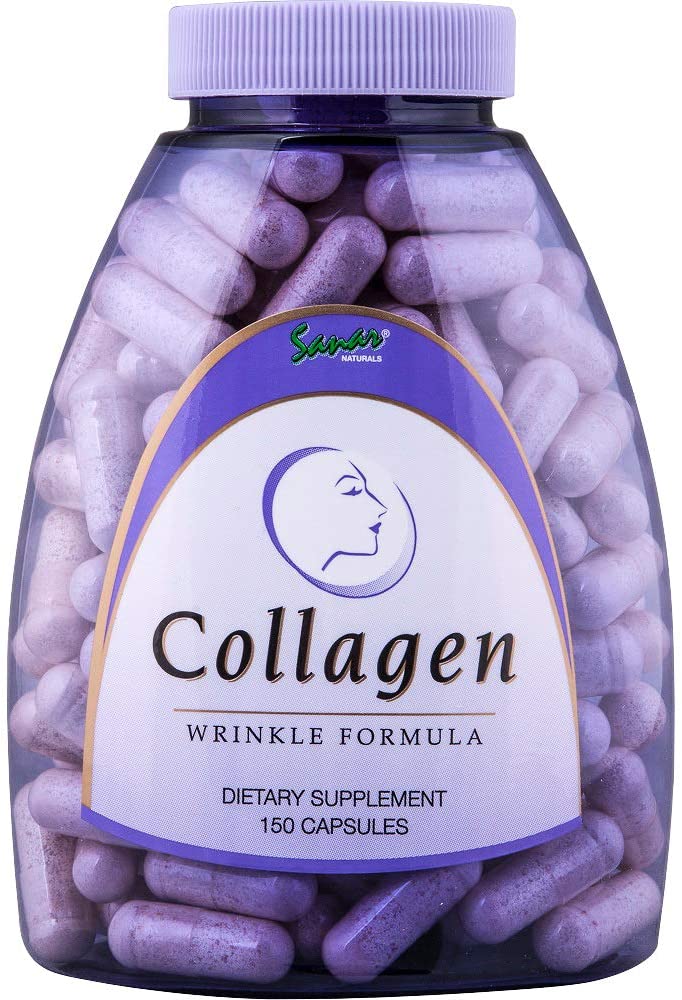

Osteoarthritis happens when your joint cartilage wears down, causing joint pain and stiffness.Īlso, in a 2017 study involving athletes, collagen peptides decreased knee joint pain related to physical activity. Engaging more regularly in physical activity could then in turn support weight management.Ī 2015 study found that collagen peptides can manage osteoarthritis.

Healthy joints are needed to move comfortably during exercise and daily activities. Relieve joint painĬollagen supplements might indirectly help weight loss by reducing joint pain. The researchers linked this effect to improved fat metabolism and reduced fat accumulation.Ī 2016 animal study also found that collagen hydrolysate (also called collagen peptides) reduced fat cell size and weight gain in rats. Similarly, in a 2018 animal study, collagen peptides from skate had an anti-obesity effect in mice. The amount of fat lost was small, but suggests potential benefits for weight loss. There’s some evidence that collagen may reduce the development and accumulation of adipocytes, or fat cells.Ī 2019 study found that collagen from skate, a type of fish, reduces body fat in humans. These results suggest that collagen supplements can support loss of body fat by enhancing the effects of weight training on muscle mass. They also lost more fat mass than the placebo group. Those who took collagen peptides experienced a greater improvement in muscle mass and strength. Half of the participants took collagen peptide supplements, while the other half took a placebo. In a 2015 study involving older adults, participants with sarcopenia (age-related muscle loss) completed 12 weeks of weight training. Remember, collagen is the main structural protein in your muscles. Taking collagen supplements may help your efforts by increasing muscle mass. That’s because muscle burns more calories at rest, increasing overall calorie expenditure. Increase muscle massīuilding muscle is an essential component of weight loss. But supplements can increase your overall protein intake, potentially improving satiety. You can’t meet your protein needs with gelatin or collagen supplements alone. It’s worth noting that gelatin is an incomplete protein, meaning it lacks all the amino acids the body needs. The study also notes that higher protein diets may stimulate muscle protein anabolism, “favoring the retention of lean muscle mass while improving metabolic profile.”Īlso, in a small 2009 study, gelatin was found to reduce hunger 44 percent more than casein, the protein in milk. They also suppress ghrelin, a hunger hormone.Īccording to a 2008 study, increased protein intake can also increase thermogenesis, which influences satiety and energy expenditure. According to a 2020 review, high-protein diets increase satiety hormones like glucagon-like peptide-1 and cholecystokinin. This could aid weight loss and management by reducing hunger, and therefore, how many calories you eat in a day.Ĭollagen might have this effect because it’s a protein. Most studies are small, outdated, or involve animals.Īlthough more research is needed, existing studies on the broader benefits of collagen show how these supplements may indirectly help with your weight loss goals: Promote satietyĬollagen supplements may increase satiety, or the feeling of fullness. To date, there’s been minimal research on the direct link between collagen supplements and weight loss. Undenatured collagen is intact and hasn’t been degraded.Ĭollagen supplements are available in several forms: This form is also called hydrolyzed gelatin, collagen peptides, or collagen hydrolysate. If the proteins are further broken down into amino acids, it’s known as hydrolyzed collagen. The heat degrades collagen, forming smaller proteins. Gelatin, or cooked collagen, is made by heating collagen for a long time. The goal of these supplements is to help your body rebuild collagen. Collagen supplementsĬollagen supplements are made from the bones and tissues of animals, like cows, horses, pigs, or fish. You can also get collagen directly by eating certain foods and by consuming supplements. Optimal collagen formation requires getting enough high-quality protein and vitamin C in your diet. In the body, collagen is naturally produced by cells called fibroblasts. In collagen, the amino acids are tightly twisted like a rope, making collagen extremely strong and stable. The amino acids glycline, proline, and hydroxyproline account for 57 percent of the total amino acids in collagen.Īmino acids are shaped like chains.

It gives structure to connective tissue like:Ĭollagen is made of amino acids, which are considered the building blocks of protein. What is collagen and what are collagen supplements?Ĭollagen is a major structural protein, making up 25 to 30 percent of the proteins in your body.


 0 kommentar(er)
0 kommentar(er)
